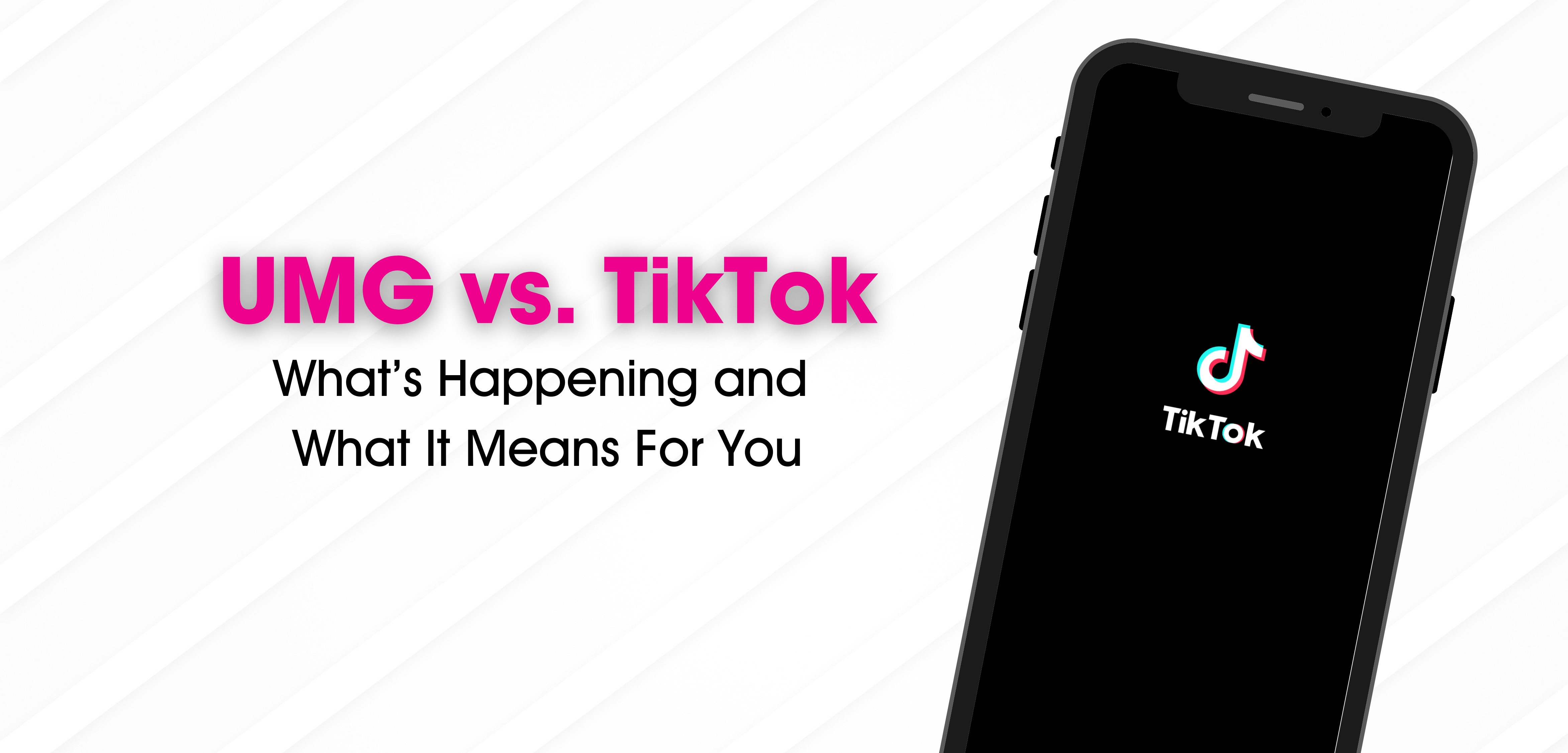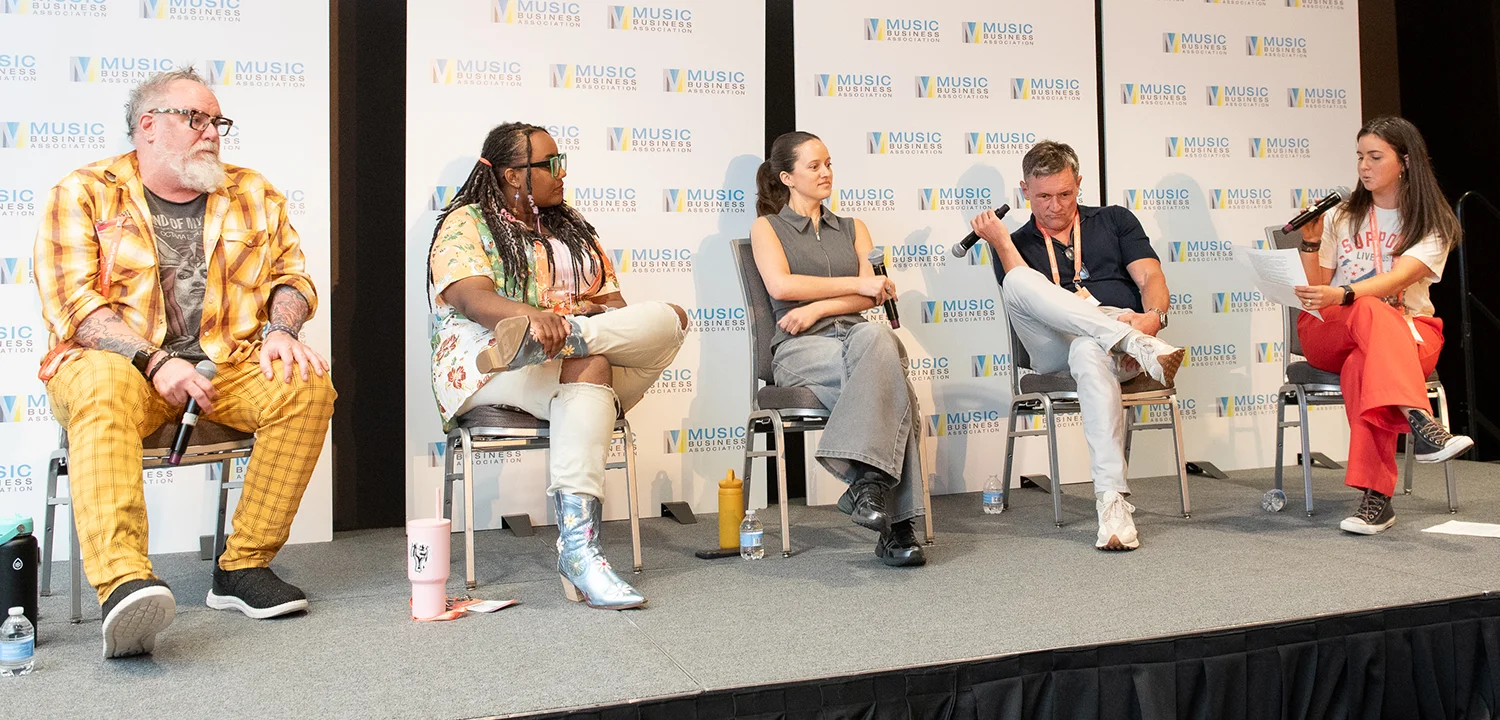In an “open letter to the artist and songwriter community” published on January 31, 2024, Universal Music Group announced that they will be pulling their entire catalog from TikTok. This news comes after stalled negotiations about their impending contract renewal.
The letter states that “despite its massive and growing user base, rapidly rising advertising revenue, and increasing reliance on music-based content, TikTok accounts for only about 1% of [UMG’s] total revenue.”
During the negotiation, UMG has seemingly pushed three critical issues: appropriate compensation for their artists and songwriters, protecting human artists from the harmful effects of AI, and online safety for TikTok’s users.
TikTok users will lose access to tracks by Taylor Swift, Noah Kahan, Olivia Rodrigo, Luke Byran, Drake, Shawn Mendes, Imagine Dragons, and many more of the biggest names in music right now. Even legacy artists like Queen, Aerosmith, Rolling Stones, and Frank Sinatra will be removed. Videos that use songs from the UMG catalog will be muted.
So what does that mean for independent labels and artists?
Based on their letter, it seems Universal hopes for TikTok, a social media platform that thrives on the creation of music-based content, to pay more for music. We’ve seen this situation before. If they succeed, it could mean a pay raise for all artists with music on TikTok. Or it could mean a pay raise for just the major labels. If the negotiation stalls, a lot of artists may be exiled for the long term.
Whatever way this goes, it’s a battle you’ll want to keep a close eye on. In the meantime, there’s room for you an independent to make a mark.
Many of Universal’s artists excel at TikTok. I can’t open it without feeling like every other video is a song from Taylor, Noah, or Olivia. However, with or without Universal and its artists, TikTok will likely continue to be a driving force in discovery.
If all of that music goes away, what will take its place?
It could be yours if you utilize the platform correctly. This is a great time to start promoting your music on the app. Many artists do this well. Some tell stories; others make up dances. Some do karaoke challenges to see who sings their song the best; others share cute pet videos. Check it out for yourself. Find what works and start posting consistently.
Before social media, marketing was a hefty line item on a budget. Even after, you still need to spend money to make sure that your own fans see your content. TikTok has allowed artists to market their music and grow their audience exponentially; the only expense is their time. The algorithm allows you to get paid for promoting your music. This should be reason enough to take the leap.
I’m not done. TikTok is a prime space for user-generated content (UGC). Not only are you able to increase your revenue with your content, but you get paid for others to use your music as well. And in the current climate, some of the biggest competitors may be eliminated, at least for a time.
We’ve seen firsthand what kind of difference it makes when you aren’t competing against the majors. In October 2007, we were one of the first to sign a content deal with YouTube. Not everyone had come around to the idea of licensing their music for use on the platform. In fact, for some their strategy was to send a legal notice and have UGC taken down.
YouTube turned out to be one of our biggest revenue streams. Some of the hip-hop instrumentals and electronic beats that we licensed 17 years ago are still top earners at YouTube. Similarly, one, two, or ten well-performing videos at TikTok can be an indefinite revenue stream, earning year after year.
Even a portion of 1% of Universal Music Group’s revenue can be life-changing and career-catapulting for an independent artist or label.
Don’t get caught on the sidelines; get in the game.





